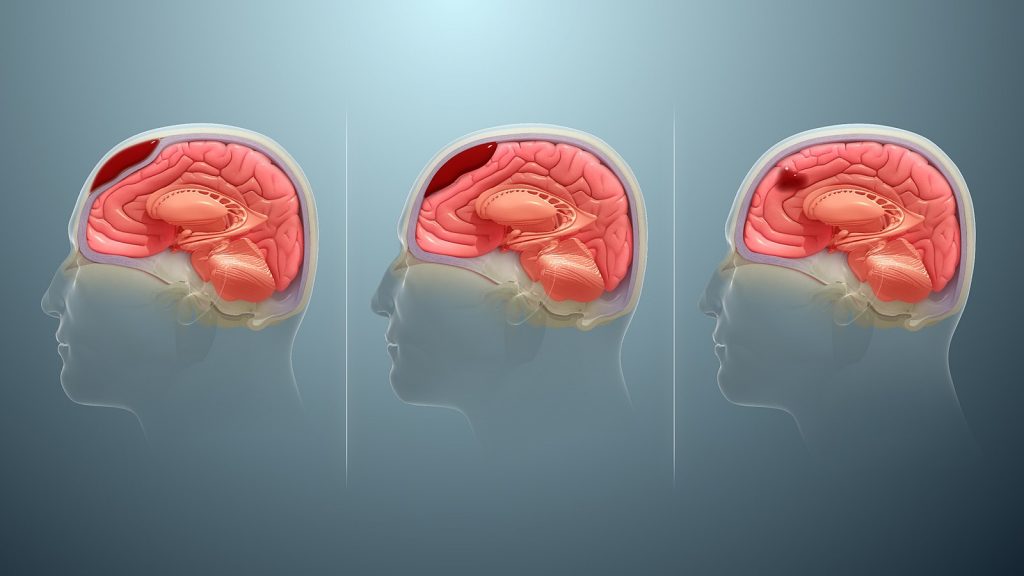Hematoma Types, Causes, Symptoms, and Treatment

Hematoma is the accumulation of blood resulting from an injury that causes a blood vessel to rupture. The blood gathers in the surrounding tissue and most commonly appears as a purplish bruise on the skin. However, some hematomas may not be visible as they occur deep inside the body. The severity of a hematoma can vary from zero risk to life-threatening determined by its type. The type, causes, and symptoms of a hematoma depend on its location. Each hematoma may be treated differently, because of its severity and position.
What are the multiple types of Hematoma?
The type of Hematoma varies with the body part it occurs in. Certain types of hematoma may eventually heal on their own, while others may be fatal and require specialized medical treatment. Some of the Hematoma are:
- Leg Hematoma: A leg hematoma may appear as a purplish bruise with swollen skin. It may or may not hurt and will usually dissolve on its own after three to four days of an injury. However, severe forms of a leg hematoma may require a surgery to drain the clotted blood.
- Subungual Hematoma: A small injury may cause some bleeding under a nail which appears as a hematoma. The body naturally heals such wounds over a few days.
- Aural Hematoma: The collection of blood between the skin and the cartilage of the ear is an aural hematoma. The most common patients of this type of hematoma are athletes of contact sports who sustain head injuries.
- Scalp Hematoma: It is usually related to the skin and muscle of the scalp and does not affect the brain. This type of hematoma appears as a bump or swelling on the scalp.
- Septal Hematoma: An injury of the septum can cause septal hematoma and if not treated properly, it can damage the septum tissue permanently. A person should seek immediate medical help if bleeding or severe pain occurs after a blow to the nose.
- Subcutaneous Hematoma: The superficial blood vessels present close to the surface of the skin may rupture and cause a subcutaneous hematoma. Such a hematoma is usually healed by the body’s natural process. However, severe cases of subcutaneous hematoma do require medical assistance.
- Hepatic Hematoma: A hepatic hematoma is likely to occur when a person sustains a blow to the abdomen. It may be treated through oral medication while some extreme cases may involve a surgery of the liver.
- Intracranial Hematoma: A traumatic injury of the brain can cause blood clots known as intracranial hematoma. In most cases, it is life-threatening and requires a surgery to remove the accumulated blood.
- Breast Hematoma: It can be a result of an injury and in some cases, it can occur without any apparent cause. The area of the breast may become discolored and have visible swelling.
- Spinal Hematoma: The area surrounding the spinal cord may accumulate blood after an injury and lead to spinal hematoma. This can be a painful experience for many.
(Reference: https://www.rxlist.com/hematoma/drugs-condition.htm , https://www.medicalnewstoday.com/articles/324831#types)
What are the major causes of Hematoma?
The occurrence of no-risk hematomas is very common among people of all ages. An injury or stress on a certain part of the body can cause small blood vessels to rupture. Such minimal hematomas include subungual or nail hematoma and minute subcutaneous hematoma. However, severe blows to different body parts can result in bleeding and lead to life-threatening hematomas that require immediate medical attention. Car accidents, falling from an elevated place, or extreme sports can cause hematomas of the head, abdomen, and chest.
Invasive medical procedures are also a leading basis of hematomas. If a tissue and its surrounding blood vessels are damaged during an incision or injection, a hematoma may form in the coming days. Oral medications can contribute to blood thinning and result in the formation of hematomas in the body. Such medicines include those used to manage blood clots, treat cancer, anti-inflammatory drugs, and steroids.
Some medical conditions also increase a patient’s tendency to develop hematomas in various parts of the body. The victims of blood cancer, HIV, and similar blood-related diseases are more prone to have internal bleeding that roots hematomas. Likewise, low platelet count, liver disease, and a deficiency of vitamin K are among the causes of hematomas.
(Reference: https://www.medicalnewstoday.com/articles/324831#causes , https://www.uofmhealth.org/health-library/aa61154 , https://www.medicinenet.com/hematoma/article.htm)
What are the symptoms of Hematoma?
The different types of hematoma can be identified through various symptoms. As some hematoma are visible on the skin, they are easier to diagnose. However, those deep in the body are harder to detect. There are multiple symptoms associated with each kind of hematoma. Because of the age and other medical conditions, the symptoms may vary from person to person.
- Subdural Hematoma: A person may have occasional headaches, dizziness, and weakness. The elevated condition can also give rise to nausea and vomiting. Confusion and seizures are prominent symptoms of severe cases of subdural hematoma.
- Epidural/Spinal Hematoma: Back pain is a significant symptom of spinal hematoma. In extensive cases, it can be accompanied by loss of bladder control and inability to stand up.
- Hepatic Hematoma: Lasting pain in the upper right abdomen, loss of appetite, and vomiting are some symptoms that may surface because of hepatic hematoma.
Several symptoms that are common in multiple types of hematoma are pain, swelling, skin discoloration, redness, bruises, tenderness, and inflammation. In some cases, symptoms may not surface until the hematoma has spread to a large area.
(Reference: https://www.medicalnewstoday.com/articles/324831#symptoms , https://www.medicinenet.com/hematoma/article.htm)
How can Hematoma be treated?
The treatment of hematoma depends on its seriousness and location in the body. While some hematoma may not require any treatment at all, a few are only curable through surgery.
The hematoma under the skin’s surface generally heals naturally, does not have any significant symptoms other than discoloration, and requires no treatment. In case of slightly symptomatic hematomas, medicines do not specifically target the hematoma but help to control the related symptoms such as pain, swelling, and inflammation. Tylenol is a popular choice for these indications. Sometimes small incisions are made to drain out the blood if it causes unbearable discomfort.
Some extreme forms of hematoma are a result of critical injuries and life-threatening accidents. The subdural, heptic, spinal, and septal hematoma are a few examples which need crucial medical surgeries to get rid of the accumulated blood. In these incidents, if the hematoma is not diagnosed timely and correctly, it can cause death or life-long damage to a person’s respective organs. If a hematoma is not a result of an apparent reason, the underlying causes must be discovered and resolved to prevent serious medical conditions from taking root.
At Bioflex, a team of expert and specialist physicians has curated a cold laser therapy treatment. It is a completely non-invasive procedure which can speed up the healing process of a hematoma without any side effects. Our professionals in clinics across the major cities of Pakistan can rid you of this painful medical condition. To read more about our treatment, please visit https://bioflex.pk/sports-soft-tissue/hematoma-treatment/
In most of the cases, hematomas are completely curable and do not have any lasting effects on the person. However, if they are not timely diagnosed in critical situations, they can lead to life-long medical problems.
(Reference: https://www.medicalnewstoday.com/articles/324831#treatment , https://www.rxlist.com/hematoma/drugs-condition.htm#medical)
About The Author
Hajra Ata
Hajra Ata is an avid reader since childhood who enjoys fictional novels. She has a strong interest in coding, specifically web and mobile development. Her me time usually involves watching seasons or curling up on the couch with a book. Hajra is currently working as a content writer at Grownix, a digital marketing agency.


